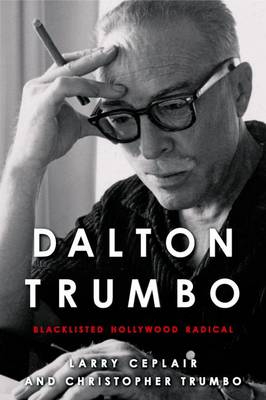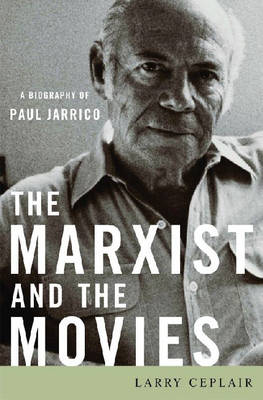Screen Classics
2 total works
James Dalton Trumbo (1905--1976) is widely recognized for his work as a screenwriter, playwright, and author, but he is also remembered as one of the Hollywood Ten who opposed the House Un-American Activities Committee. Refusing to answer questions about his prior involvement with the Communist Party, Trumbo sacrificed a successful career in Hollywood to stand up for his rights and defend political freedom. In Dalton Trumbo, authors Larry Ceplair and Christopher Trumbo present their extensive research on the famed writer, detailing his work, his membership in the Communist Party, his long campaign against censorship during the domestic cold war, his ten-month prison sentence for contempt of Congress, and his thirteen-year struggle to break the blacklist. The blacklist ended for Trumbo in 1960, when he received screen credits for Exodus and Spartacus. Just before his death, he received a long-delayed Academy Award for The Brave One, and in 1993, he was posthumously given an Academy Award for Roman Holiday (1953). This comprehensive biography provides insights into the many notable people with whom Trumbo worked, including Stanley Kubrick, Otto Preminger, and Kirk Douglas, and offers a fascinating look at the life of one of Hollywood's most prominent screenwriters and his battle against persecution.
As part of its effort to rid the nation of Communist influence and infiltration, the House Un-American Activities Committee subpoenaed hundreds of actors, screenwriters, producers, and directors with suspected "Red" leanings in 1947. Some of these film industry veterans, including screenwriter Paul Jarrico (1915--1997), refused to testify on Capitol Hill and were denied subsequent employment. In The Marxist and the Movies, Larry Ceplair illuminates the life, career, and political activism of Jarrico, the recipient of an Oscar nomination for his screenplay for Tom, Dick, and Harry (1941) and the producer of the only film ever blacklisted, The Salt of the Earth. Although the story of the Hollywood Ten has been told, The Marxist and the Movies is a unique look at Communist activities during this seminal period in American history. Ceplair recounts Jarrico's struggles against both personal demons and the prevailing power structures of his era. Through firsthand accounts from Jarrico himself and interviews with those closest to him, as well as congressional records and statements from those on both sides of the Red Scare, Ceplair provides an intimate view of Paul Jarrico's life, set in historical and cultural context.

